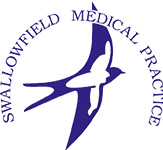Introduction
Your local health and care services are working more closely together to provide a joined-up service to meet your needs.
Working together improves the quality of care because the clinicians and other professionals involved in your treatment and care provision have better, more timely and more complete information on which to base their decisions.
The local shared care record reduces the need for you to repeat your story in each different setting, thereby saving you time and frustration. It also makes the services themselves more efficient by enabling health and care professionals involved in your care to view the relevant records as and when appropriate.
The Health and Social Care Act 2012 places a legal requirement on health and social care organisations to share data with other health and social care organisations involved in your care or likely to be involved in your care.
There are also occasions where we have a legal duty to pass patient information to external organisations such as NHS Digital and NHS England that either provide national shared care records such as the NHS summary care record or that have a responsibility to oversee and address issues relating to the management of the NHS as a whole.
In addition, your data is also used in an anonymised form to manage the quality of the services you receive and to help monitor, manage and improve the provision of health and social care nationally and locally.
Together, the UK Data Protection Act 2018, the General Data Protection Regulation and our Common Law duties set out the rules we need to comply with when processing and sharing your data and we and our local partners have policies and procedures in place to ensure we comply.
As an example, one such policy is a requirement for staff to be trained and tested regularly with respect to data protection and privacy.
The local shared care record
Local shared care records are used by the practice to share some key information from your records with other organisations and health and social care professionals who may be involved in your care.
Role based access controls are implemented within the local shared care record systems and these controls make certain that only those roles that have a legitimate reason to access your data can do so. In addition to the technical access controls, all organisations that have been granted access to the local shared care records have committed to perform regular audits to ensure that the controls are properly applied.
The various types of organisation that may be required to view relevant aspects of your data using the local shared care record include:
- NHS Trusts, including
- Hospitals
- Community healthcare services (when you have been referred to them)
- Emergency services
- Mental health services (when you have been referred to them)
- Specialist service providers (when you have been referred to them)
- Local authorities
- Voluntary sector organisations (when you have agreed to be referred to them)
- Independent sector health care providers (when you have been referred to them)
- Independent sector social care providers (when you have been referred to them)
Practices contribute the following types of data to the local shared care record:
- Personal demographic details (e.g. address, date of birth, next of kin/emergency contact details, ethnicity, disability or language preferences)
- Allergies
- Events and episodes of care
- Health promotion information
- Medication data (current and past)
- Preventative procedures
- Problems
- Procedures
- Referrals
- Relevant social and family history
- Results from diagnostic procedures
- Test results
Other health and social care organisations contribute the following types of data to your local shared care record:
- Alerts, allergies, risks and warnings
- Admissions and discharges
- Ambulance, NHS 111 and Out of Hours calls
- Care plans
- Carer details
- Diagnostic tests, imaging, results and reports
- Electronic documents and letters
- Next of kin
- Referrals, appointments and consultations
There are three main local care records that are made available to support your care across the local health and social economy. These are:
- Share Your Care (which is also known as Connected Care) and for some patients a similar arrangement known as CHIE (formerly the Hampshire Health Record). This local shared care record consolidates your important local data from all sources for access by authorised professionals when you need it;
- The GP clinical system used in practices and other non-hospital settings that can provide near real-time access to your GP data when you are being cared for elsewhere in the local health care economy; and
- The local pathology and diagnostic system that can provide details of your tests and diagnostic reports to authorised professionals elsewhere in the local health care economy when you need it.
Your rights
Your rights in respect of these local shared records are summarised below:
- As required by law, you have a right to request a copy of your local shared care record
- You also have a right to request that errors in your records are corrected
- For some uses of your data, you also have the right to object to your data being processed
We aim to comply with these rights at all times.
For queries and requests regarding GP clinical system shared records, please contact the practice.
For queries and requests regarding Share Your Care and local pathology and diagnostic shared records, contact fhft.information.governance@nhs.net.
For more information on anonymised data processing please see the NHS: Your Data Matters.
